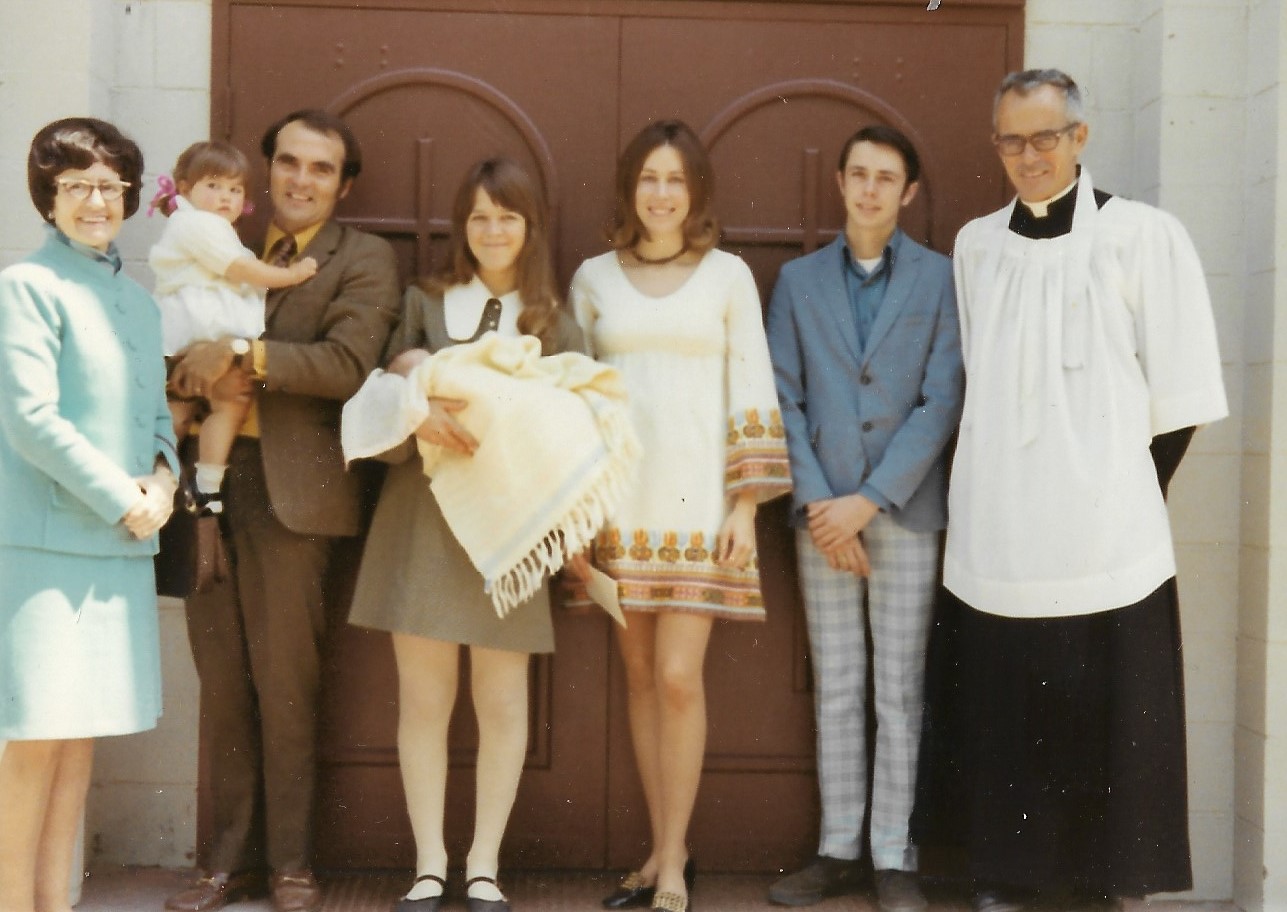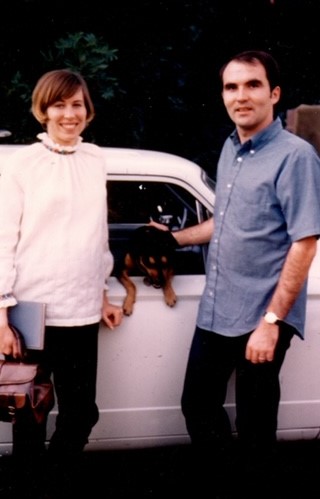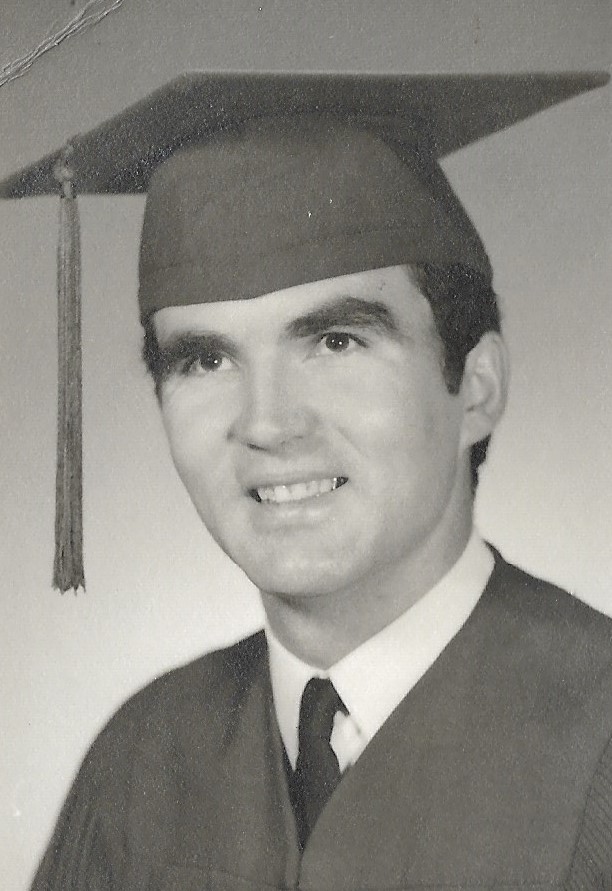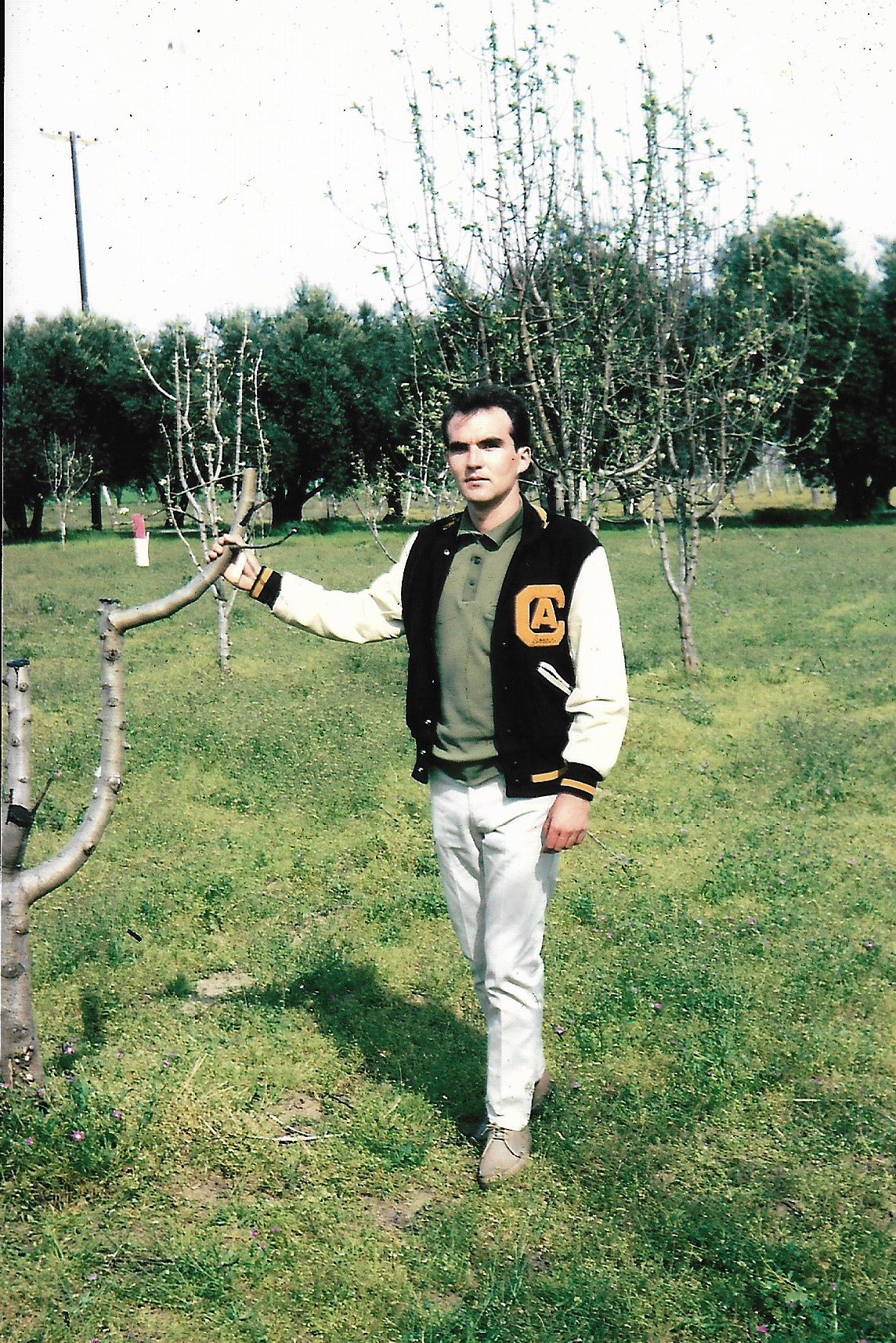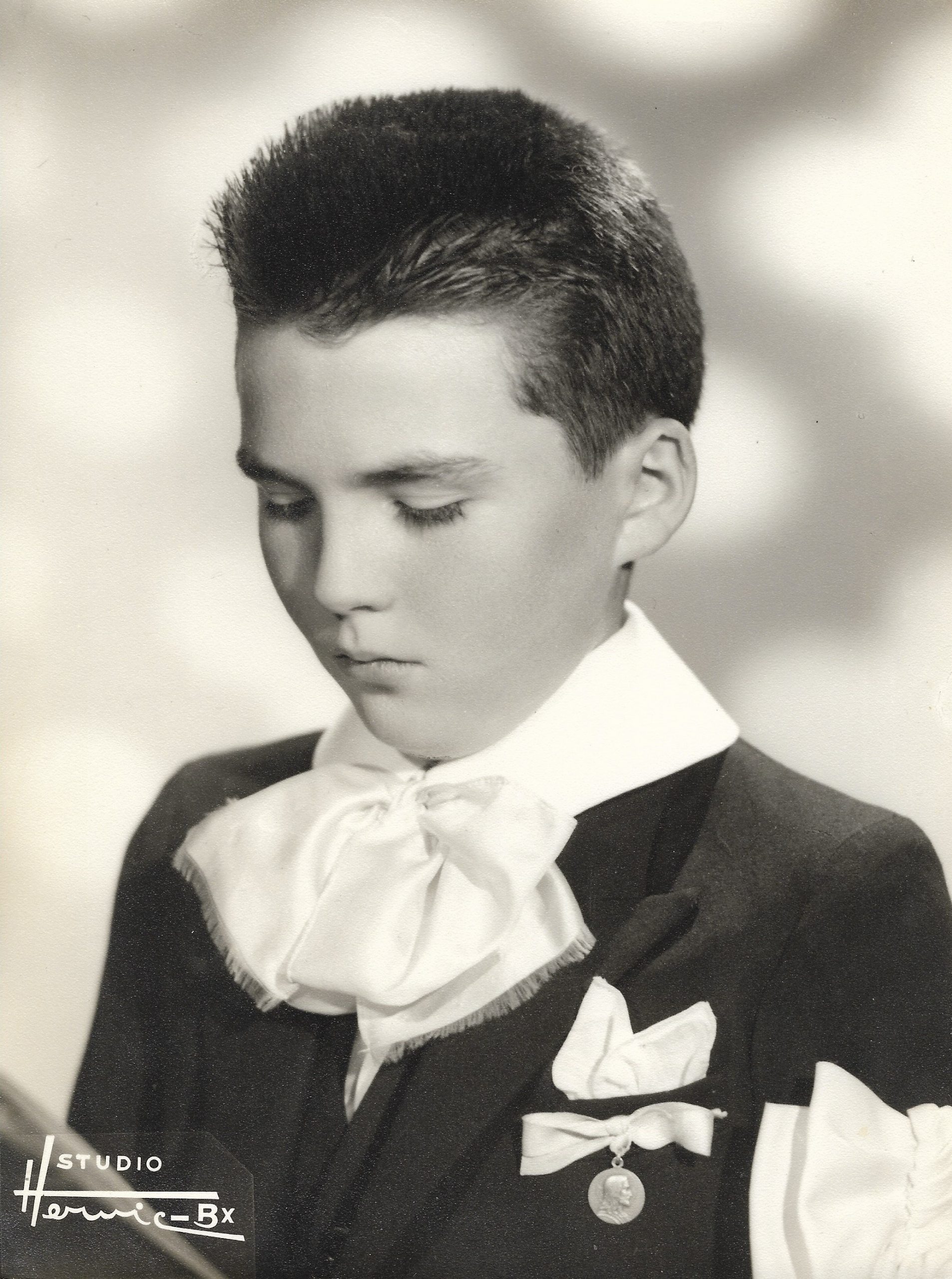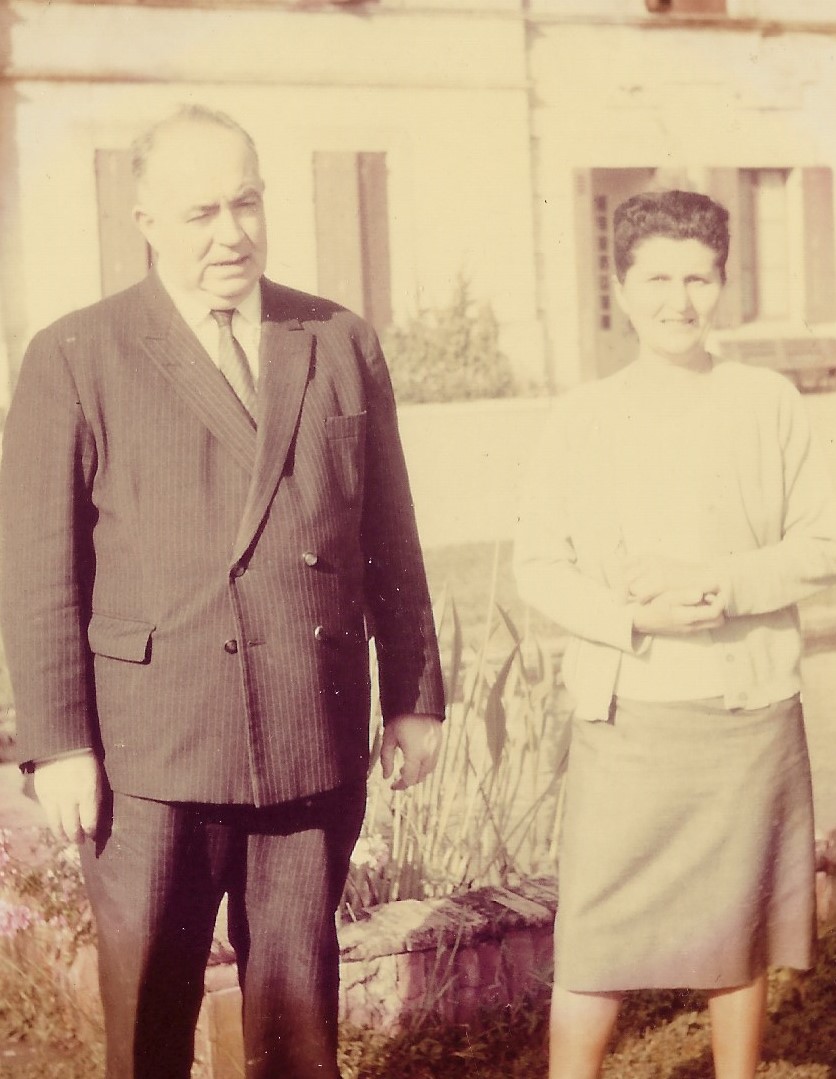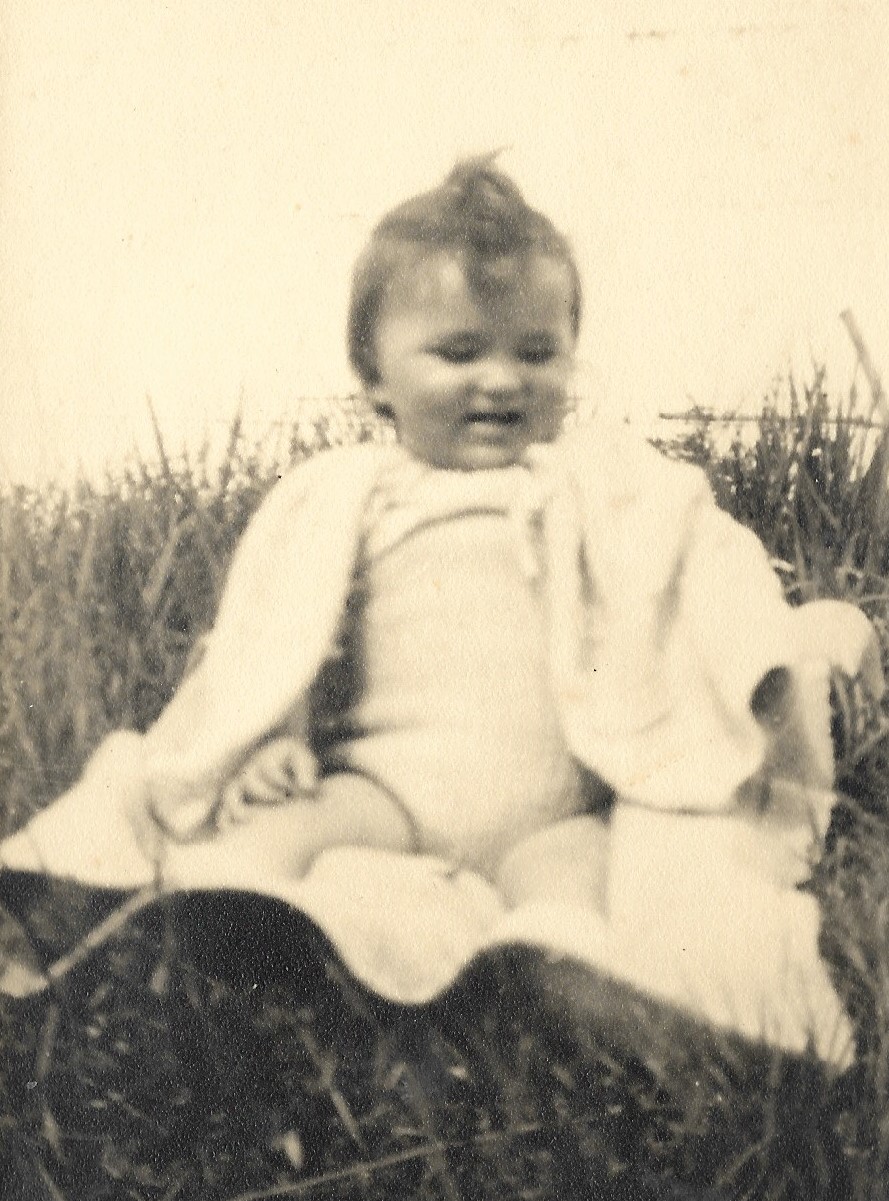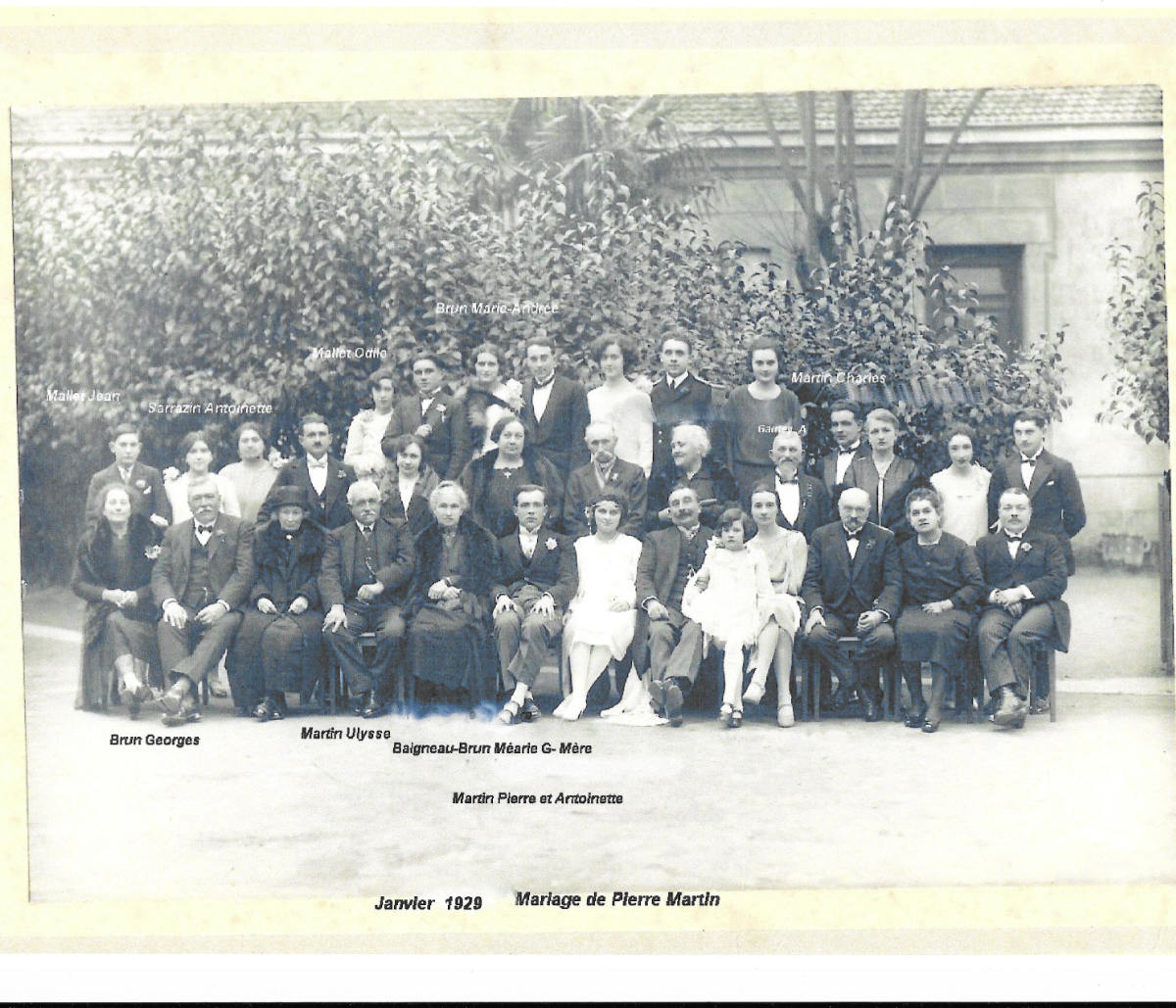When we brought Valérie home, no one was available to come and help; Mary had to do it all herself and we adjusted the best we could. Mary took the girls to LA that summer. The few days they spent with her mom and particularly with her grandma were very special to her. Caroline and Valérie, were introduced to their cousins Kim and Wendy.
In late fall, after the grape harvest was over, my parents sent us tickets so we could visit them in France. In our excitement to go, we failed to add the girls to either of our passports, and LAX officials wouldn’t let us take off. Finally, after we obtained their birth certificates, they were added to Mary’s passport. Their pictures were especially cute, since Caroline had recently cut her sister’s bangs. After a layover in Paris, we arrived in Bordeaux where my brother Bernard met us at the airport. We stayed in Augey all three weeks we were in France.
Caroline, almost two, adapted well to the new environment, being quite social. Valérie, seven months old, wanted to start walking already. The night we arrived, we went to Bernard’s house for a visit. Valerie pulled herself up behind a chair which tumbled onto her, resulting in a big bump on her forehead and two black eyes. Later on in the week, we were concerned that Valérie had a persistent high fever. Dr Dugers came over and prescribed warm milk for what we thought was strep throat. Of course Mary was quite alarmed, not trusting a French country doctor, but Valérie was soon fine, having a simple sore throat. We spent our days visiting many family friends, including Madame Pialoux, the pharmacist in Rauzan, and especially Marthe, the nice lady who had known my dad since he was a young boy. When I was in elementary school in Rauzan, I always had lunch at her house, as did my brother Bernard before me. I even spent the night at her house sometimes if my parents were out of town.
Melanie was born July 7, 1972. That summer, Marie-Helene, my sister’s oldest daughter, spent a few weeks with us. An energetic 20-year-old, she was Melanie’s godmother and a good help to Mary. They bought some fabric and sewed a summer dress for Marie-Hélène, which she later wore to some family event back home in France. My conservative family disapproved of the dress because it did not have much of a back! Caroline and I also took her to Disneyland, and what a treat it was for all of us.
I started to feel secure in my job, having good rapport with the upper management. I enjoyed the pressures, at times being responsible for three or four crews and their supervisors. I started to be totally consumed by my work, coming home late afternoon, tired and thinking only about the next day. I now realize that I was becoming dominated by “the Gallo culture” where we were expected to be tough, ruthless in dealing with vendors, and secretive. I almost got fired because I was caught in a coffee shop one morning with a representative of an irrigation company I was working with. We were having a simple cup of coffee! But it violated the company’s intolerance of relationships with outside groups.
In late September, as harvest was winding down, I received a call from a Davis classmate who encouraged me to apply for a job working in developing vineyards in Napa Valley. It could have not come at a better time, as I had just been assigned to work as a Pomologist at a large and very isolated apple ranch that the Gallo family was developing near the town of Snelling. We were expecting to move into one of the prefab houses recently located there. When I had taken Mary and the three girls there in our little car, I could sense how frightened and worried Mary was. It seemed a bad omen that we lost the muffler of our car driving over the Merced River bridge, which was constructed from flat railroad cars without barriers or guardrails.
I interviewed for the Napa Valley position and got the job. We found a house to rent in downtown Napa and were ready to start a new chapter. Caroline and I drove the rental truck packed with our belongings, while Mary stayed behind with Valerie and Melanie to do the final clean up of the vineyard house. After my friend Alex helped me unload the truck, I put Caroline in the child seat of a bicycle and we went to get something to eat. Soon Mary arrived and the five of us settled happily in our new place.

